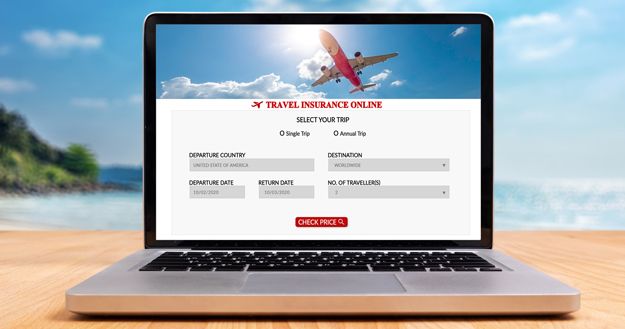Travel insurance myths you must stop believing
Contents
Travel is the easiest way for us to make unforgettable memories. We all look forward to exploring new destinations and immersing ourselves in a new culture. Most of us spend weeks or months planning our next trip. However, we sometimes forget that circumstances outside our control could derail our plans. A travel insurance policy can help us deal with the costs associated with various travel-related issues. Despite understanding the purpose of travel insurance, many people refrain from buying a plan before taking a trip due to some popular myths about insurance. Let’s separate fact from fiction and help you better understand the crucial role of insurance while travelling.
Busting common travel insurance myths
Myth 1: I don’t need travel insurance if I have health insurance
Many travelers wrongly believe their health insurance plan will help them with illnesses or medical emergencies overseas. Unfortunately, most health insurance policies do not offer coverage outside the geographical limitations of India. Your travel insurance policy will cover unforeseen circumstances like trip cancellation, lost luggage, evacuation, and medical emergencies. Apart from the coverage, the insurance plan also provides peace of mind.
Myth 2: Travel insurance is expensive and not worth the cost
The cost of your travel plan depends on your destination, travel duration, age, and the selected coverage. Although travel insurance is an additional expense, you must weigh the potential benefits or losses against the cost. Your baggage getting delayed by a day could mean purchasing clothes, toiletries and other essentials in a foreign country, setting you back a bit. Dealing with a medical emergency or consulting a doctor on vacation could severely impact your finances. Your travel insurance helps with all these costs, making the nominal premium worth it.
Myth 3: I can buy insurance just before the trip
You can purchase insurance any time before you travel. However, pushing the purchase until the last minute could hurt you and your finances. A last-minute cancellation or delay without insurance leaves you open to paying the required fees. Ideally, buy a policy as soon as you book your trip. Once you have the plan, you don’t have to worry about last-minute cancellations or delays due to circumstances outside your control.
Myth 4: All travel insurance policies are the same
The benefits, coverage, and exclusions of various policies differ significantly. One plan may cover medical expenses up to USD 50,000, while another may provide coverage up to USD 500,000. Assess your specific needs and understand the required coverage. Compare the offerings and benefits offered by various policies before making a decision. Ensure you purchase a plan that aligns with your travel requirements.
Myth 5: I only need insurance for an international trip
While international travel poses unique risks, domestic trips can also be subject to unforeseen circumstances. Travel insurance provides coverage for international and domestic trips. These plans offer protection against various risks, including trip cancellations, medical emergencies, lost baggage, and more. Purchase a policy that protects you and your loved ones.
Myth 6: I don’t need travel insurance since I don’t partake in high-risk activities
Everybody requires travel insurance, regardless of the activities they hope to enjoy on holiday. While thrill seekers need specific plans that cover adventure sports, senior citizens hoping to enjoy a calm visit to their loved ones abroad also require insurance to help them deal with unexpected issues and medical emergencies. Always ask yourself what is the best travel insurance policy for your needs before paying the premium. Remember to select a plan that provides the required coverage to avoid unpleasant circumstances in the future.

How to buy a travel insurance policy in India
Now that you understand why travel insurance is important - let’s help you select the ideal insurance policy for your next trip.
1. Research
Browse available plans to understand your options. If you travel often and alone, consider a multi-trip policy for coverage across several journeys. People travelling with families could purchase group plans. Insurance companies today also offer separate policies for senior citizens. Identify an insurance policy that best works for your unique needs.
2. Assess the benefits
After selecting the type of policy required, you must compare the coverage and additional benefits offered. Evaluate the coverage provided by each plan and identify which travel insurance is best for you.

3. Pay the premium
Once you select a policy, you can pay the premium to get your plan issued. A soft copy of the policy gets sent to your registered e-mail address as soon as you complete the transaction. Travel insurance is a crucial component of every travel plan. It provides much-needed financial protection and complete peace of mind. Now that we have busted these common travel insurance misconceptions, you can make informed decisions while planning your next trip. Ensure you complete thorough research to identify the ideal policy for your travel needs. Once you buy insurance, you can enjoy a worry-free trip. Safe travels!
ARN: Zuno/Blog/Travel insurance myths you must stop believing/07/23/04
All rights reserved



